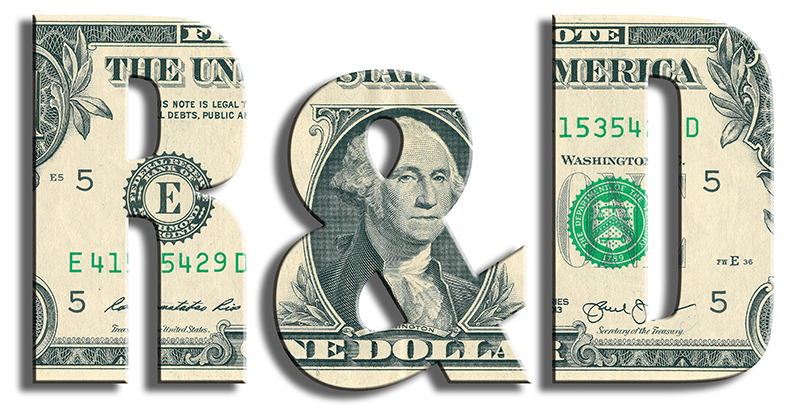The R&D World Index (RDWI) for the week ending September 9, 2022, closed at 2,392.91 for the 25 companies in the RDWI. The Index was up 2.78% (or 64.73 basis points) from the week ending September 2, 2022. Twenty-four of the 25 RDWI members gained value from 0.02% (Toyota) to 7.33% (General Motors). Only one of the 25 RDWI members lost value last week: -0.84% (Honda Motors).
RDW Index member Volkswagen AG, Wolfsburg, Germany, announced last week that it would list its sports car maker Porsche AG in a large initial public offering (IPO). The IPO is valued at between $60 billion and $85 billion involving a complex arrangement of investors including the Porsche family heirs, the Qatar Investment Authority, VW and public shares. The new company would be listed on the Frankfurt Stock Exchange in late September or early October. VW said the proceeds from the IPO would help the company bankroll its transition to electric vehicles (EVs) and self-driving cars.
EV automaker Tesla Inc., Austin, Texas, announced in legal documents to the Texas Comptroller’s Office last week that it is looking to construct an EV battery-grade lithium hydroxide refining facility with access to the Gulf Coast shipping channel for potential manufacturing sites in Texas and Louisiana. The company said that construction on one potential site in Texas could begin in 4Q 2022, with commercial operations up and running by the end of 2024. These actions are being done since constraints in the refining of materials in lithium-ion batteries has raised the overall costs of EVs.
Suzuki Motor Corp., Hamamatsu, Japan, announced last week that it was setting up a new company, Suzuki R&D Centre India, Gujarat. About 60% of the company’s global 2.8 million automotive production is currently produced in India. The company is setting up EV and EV-battery production capabilities in Gujarat and expects to produce its first EVs from there in 2025-2026. They already export lithium-ion battery cells from Gujarat to other Suzuki sites.
The European Union’s (EU’s) antitrust regulator announced last week that it had blocked Illumina Inc.’s, San Diego, acquisition of cancer-test developer Grail Inc., Menlo Park, California. This action followed approval just days earlier by a U.S. administrative law judge. Regulators in the U.S. and the EU have both vowed to scrutinize mergers more closely. In this case, the EU regulators stated that Illumina’s proposed $7.1 billion merger would stifle innovation and reduce choice in an emerging market for early cancer detection blood tests. The EU action is unusual in that it involves a company without EU revenue.
Samsung, Suwon, South Korea, announced last week that it plans to expand its industry-academia program to 70 engineering colleges in India to help create a pool of talent for new-age R&D challenges. Their PRISM (Preparing and Inspiring Student Minds) program has trained more than 4,500 engineering students since its beginning in 2020. More than 1,000 professors have worked with the Samsung R&D Institute in Bangalore to successfully deliver live projects. The R&D Institute has also filed more than 3,500 patents in India and more than 7,500 patents globally.
Telecom gear maker, Huawei, Shenzhen, China, announced last week that it is considering scaling down its R&D operations in India, which could affect a majority of the 3,500 R&D jobs the company has created there over the past 20 years. These actions follow heightened scrutiny by India’s government, along with income tax raids, audits and the issuance of a lookout circular (LOC), which Huawei has appealed.
It was reported last week that the Biden administration is considering invoking an executive order to screen and possibly restrict U.S. overseas investments in cutting-edge technology development in China and other potentially hostile countries. This action comes as policy makers are concerned that U.S. investment in China could help China achieve its goals to strategically dominate important sectors, such as semiconductors, artificial intelligence and quantum computing.
Amylyx Pharmaceuticals Inc., Cambridge, Massachusetts, received U.S. Food and Drug Administration (FDA) backing for its drug for amyotrophic lateral sclerosis (ALS). What is interesting here is that the FDA advisory panel voted 6-4 in March 2022 against approval of the drug citing not enough evidence in phase 2 clinical study results. A second advisory panel considered additional data provided by Amylyx to make its turn-around decision. The FDA has until the end of September to make its full approval decision for the drug.
The U.S. Centers for Disease Control and Prevention (CDC) last week announced that they plan to recommend annual COVID-19 booster shots, citing evolution of the virus in unexpected ways. The approved developers of the vaccines and booster shots — Pfizer/BioNTech and Moderna — began shipping updated booster doses last week to vaccination sites across the U.S.
Ernst & Young (EY), London, announced last week that they are splitting their consulting and auditing businesses, following approval by vote of the firm’s 13,000 partners by early 2023. EY is in negotiations with hundreds of regulators world-wide to get approval for the split. EY competitors do not plan to split their businesses.
Tesla Inc. lost EV market share in China to BYD Co., Shenzhen, in August according to the China Passenger Car Association. Tesla had 12% of China’s new energy wholesale market while BYD had a 16% market share. Of all vehicles produced in China, more than 30% are electric or plug-in hybrid cars. China continues to offer tax exemptions and other incentives for new energy car buyers, which were recently extended until the end of 2023.
R&D World’s R&D Index is a weekly stock market summary of the top international companies involved in R&D. The top 25 industrial R&D spenders in 2020 were selected based on the latest listings from Schonfeld & Associates’ June 2020 R&D Ratios & Budgets. These 25 companies include pharmaceutical (10 companies), automotive (6 companies) and ICT (9 companies) who invested a cumulative total of nearly 260 billion dollars in R&D in 2019, or approximately 10% of all the R&D spent in the world by government, industries and academia combined, according to R&D World’s 2021 Global R&D Funding Forecast. The stock prices used in the R&D World Index are tabulated from NASDAQ, NYSE and OTC common stock prices for the companies selected at the close of stock trading business on the Friday preceding the online publication of the R&D World Index.




Tell Us What You Think!